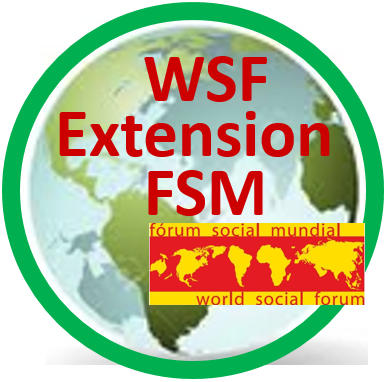-
indonesiaandwsf act513 accompaniment of urban social forum 6
last modified December 12, 2018 by facilitfsm
fsm2018.org ![]() fsm2016.org WSF calendar FSM
fsm2016.org WSF calendar FSM ![]() OpenFSM.net
OpenFSM.net
PRESENTATION> Invitation Extension-1 page EN - ES - FR
CHRONOLOGY > ACTIVITIES | GEOGRAPHY > ACTIVITIES
> INVITATION FROM INTERNATIONAL COUNCIL WSF
@ Asia & WSF @ Indonesia & wsf | @indonesiaandwsf & dynex1WSF
Online participation in the 6th Urban Social Forum – Solo, Indonesia
WHO IS CONVENING: USF organizing committee through Kota Kita, by placing USF6 in Dynex1WSF extension dynamics this organization assert itself as a participating instance in the World Social Forum Process, as both described in the Charter of Principles of World Social Forum - USF6 is an event placed in WSF calendar of events.
We invite you to be a part of the movement.
WHERE December 15th , 2018 | 9am-5.30pm (GMT +7)
Don’t miss the plenary session and other exciting panels below!

OPENING PLENARY
Invisible Cities: A closer look to the bottom-up, community initiatives and collaborations in Indonesian Cities
Speakers:
Alissa Wahid, GUSDURIAN (inter-faith, peacebuilder organization)
Roy Thaniago, Remotivi.id (Media practitioner)
Yuli Kusworo, Community Architect
Wahyu Susilo, Migrant Care (labour and migrant rights)
The plenary session will discuss different ideas and perspectives to answer the challenges in creating cities that operate with principles of social justice, inclusion, and are built upon citizen participation, represented by socials activists, urban practitioners, and human rights activists.
PANEL 3
Ending the Poverty Cycle with Disability-inclusive City Planning and Development Agenda
Speakers
Tio Tegar, UGM Yogyakarta
Didik Yudianto, Ohana Yogyakarta
Aprilian Bima, GERKATIN Solo
Marthella Rivera RS, Disability Specialist, Bappenas (National Planning Agency- Republic of Indonesia)
Abi Marutama, Human Rights Activist
The year 2016 saw Indonesia pass its Disability Law (No. 8/2016) in references to the UN Convention on the Rights of Persons with Disabilities. The passing of this policy received a wave of positive responses for providing a legal umbrella that ensures equal rights and accessibility in the everyday lives of persons with disability. With this law, persons with disability are no longer treated as mere objects or beneficiaries of aid but are rather recognized a citizen with full rights to basic needs such as education, livelihoods, and political participation.
With a good policy now in place, it is time for stakeholders in cities to work together in supporting and ensuring its implementation. This panel will discuss the many initiatives that will and/or have been carried out by organizations, activists, or regional leaders in bringing the understanding of accessibility and inclusivity within urban spaces into the mainstream, and to explain why accessibility in cities is necessary not simply for the benefit of a limited group of people but rather as a positive change that will affect everyone.
PANEL 6
‘Pulau Plastik’ (Plastic Island) : Tackling Our Plastic Waste Problem Through Reducing and Recycling
Speakers
Tungga Dewi, Kopernik, Bali
Rendy Aditya, Parong-pong, Bandung City
In November 2017, a “garbage emergency” was declared in Bali after many of the beaches popular with tourists were inundated with trash. It is estimated that the island of Bali alone contributes up to 110,000 tonnes of plastic waste annually. Similar with other major cities in Indonesia, single-use plastic packaging is very popular in Bali with plastic bags, bottles, and beauty product sachets used heavily across the island. In its war against plastic, Kopernik (a foundation based in Ubud, Bali) identifies two key strategies to address the plastic waste problem: 1) prevention through reduction in plastic waste consumption and 2) mitigation through the establishment of better practices and policies to recycle the plastic waste that’s already been produced. The panel will reflect on these two strategies and invite participants to gain a greater understanding of the plastic waste problem in Indonesian cities, especially tourist cities like Ubud and Solo, as well as the practice of waste separation and disposal by households. It also aims for Increased community activism in order to influence government policy change that substantially limits plastic bag and packaging use. Finally, it aims for a better understanding of the current challenges and opportunities in plastic recycling and processing technique in Indonesia.
HOW IS REMOTE PARTICIPATION INCLUDED?
Join us LIVE on YouTube through bit.ly/usf6livestreaming
Follow our chat room on WhatsApp act 513 Plenary USF6 through bit.ly/usf6livechat
Website: urbansocialforum.or.id
Contact: usf.indonesia@gmail.com
